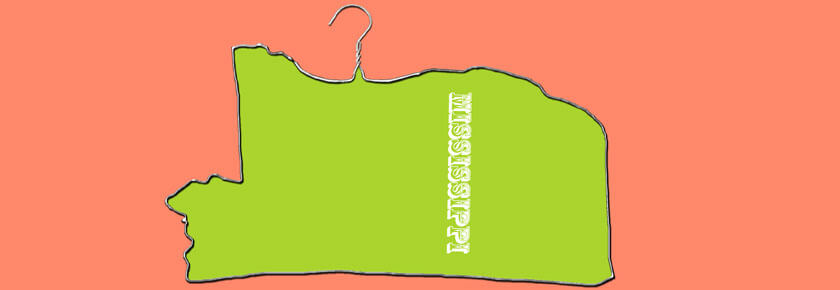
The only licensed clinic in the state just closed its doors. Here’s what it means.
This article was made possible because of the generous support of DAME members. We urgently need your help to keep publishing. Will you contribute just $5 a month to support our journalism?
On January 11, Jackson Women’s Health Organization (JWHO) – the last abortion clinic in Mississippi – will officially close its doors. It has no choice – it will be in violation of a new state law that requires all abortion providers to have hospital admitting privileges.
The new law was specifically designed by Gov. Phil Bryant to make Mississippi “abortion-free.” Though the clinic’s physicians have made sustained efforts to comply over the last six months, every hospital in a 200-mile radius has denied them admission. As a result, the only officially licensed abortion provider in the state is being regulated out of existence.
Clearly, this marks a new era in the struggle for reproductive health. So what happens next? Here are some likely consequences.
The U.S. Department of Health and Human Services ranked Mississippi as the state with the highest incidence of teenage pregnancies in 2010 — a birth rate of 55 per thousand births, compared to a national average of 34.2. In 2006, 21 percent of unintended pregnancies, the majority of which were teen pregnancies, ended in abortions, so without better access to women’s health care and abortion services, the rate of teenage motherhood will rise considerably.
,
According to the Guttmacher Institute – an organization that studies reproductive health across the world – ending abortion in the state will likely be a real blow for taxpayers. In 2006, 81 percent of births from unintended pregnancies were publicly funded.
,
Arkansas, North Dakota, and South Dakota all have a sole abortion clinic that is threatened with closure because of recent regulation. They are likely to follow Mississippi, a state that, in the early 1980s, had 14 licensed abortion facilities. The dramatic winnowing of these clinics has largely to do with the restrictive laws the state has pushed for in the past three decades, specifically targeting abortion facilities. The pro-life movement calls these laws “TRAP” laws—short for Targeted Regulation of Abortion Providers—and they have been imposed in 45 states and the District of Columbia.
“It’s death by a thousand cuts,” said Michelle Movahed, a lawyer for the Center for Reproductive Rights and the lead attorney in the JWHO case. “Mississippi is an anti-choice dream scenario, but it’s only the canary in the coal mine.”
,
Statistics here are, of course, impossible to obtain. But without access to safe and legal options, Mississippi women will have only two choices. Either travel 200 miles to Alabama, Tennessee, or Louisiana to obtain a procedure—a costly option, since those states requires a 24-hour waiting period, and many women cannot afford the hotel room for the night. Or take matters into their own hands.
“People laugh at the reference to the coat hanger, but women who are poor and desperate will try anything,” says Diane Derzis, the owner of JWHO. This doesn’t necessarily mean an actual coat-hanger – women will often order RU-486, the abortion pill, over the Internet. But even then, only if they can afford it. In 2011, Mississippi’s median household income was the lowest in the nation at $36,919, according to the U.S. Census Bureau.
,
JWHO’s only hope is for the federal government to overturn Mississippi’s restrictive law, and Michelle Movahed and her team are hopeful that this will be the case. There is precedent for her optimism.
In 2004, a district judge proclaimed a similar restriction on abortion facilities unconstitutional — one that would have effectively banned all procedures beyond the first trimester. Though Judge Daniel P. Jordan III of Federal District Court allowed the law to go through in July, he blocked civil and criminal penalties from the law for six months. Movahed believes that the JWHO case means that more of these laws will be challenged on federal grounds.
“It’s very clear that it’s not a public safety issue, so much as engaging in a consorted effort to ban abortion,” Movahed said. “We believe that violates women’s constitutional rights.”
Before you go, we hope you’ll consider supporting DAME’s journalism.
Today, just tiny number of corporations and billionaire owners are in control the news we watch and read. That influence shapes our culture and our understanding of the world. But at DAME, we serve as a counterbalance by doing things differently. We’re reader funded, which means our only agenda is to serve our readers. No both sides, no false equivalencies, no billionaire interests. Just our mission to publish the information and reporting that help you navigate the most complex issues we face.
But to keep publishing, stay independent and paywall free for all, we urgently need more support. During our Spring Membership drive, we hope you’ll join the community helping to build a more equitable media landscape with a monthly membership of just $5.00 per month or one-time gift in any amount.
















































































